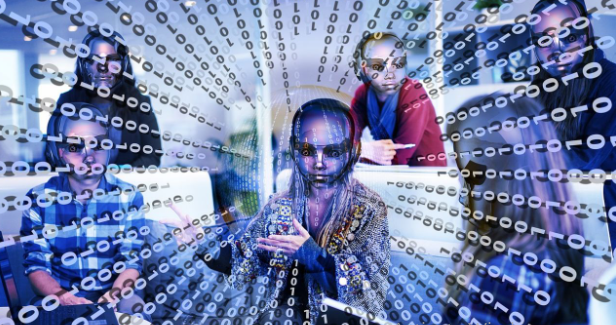
Technology is moving forward without stopping and more and more areas are being seen full of changes. Education is no exception, and artificial intelligence (AI) is revolutionizing the way we learn. In this article, we will explore the importance of artificial intelligence in education and how it is transforming teaching faculty.
Artificial Intelligence in Education
Artificial intelligence is a branch of computing that focuses on the creation of programs and systems that mimic human intelligence. Its aim is to allow machines to perform tasks that require intelligence, such as learning and problem solving.
In education, AI can help improve the quality of student teaching and learning, you want to know how? Keep reading.
What is artificial intelligence in education?
Artificial intelligence in education refers to the application of AI techniques in the educational field. They may be:
Creation of systems that can be learned autonomously.
Custom tutoring programmes.
Automatic task evaluation.
Design of personalized curricula for each student.
What is the Importance of Artificial Intelligence in Education?
The importance of artificial intelligence in education lies in its ability to improve the quality of learning and teaching. AI can help students learn more effectively by personalizing learning experience and providing feedback in real time.
What Benefits can Artificial Intelligence offer in Education?
Today, artificial intelligence is becoming an increasingly important tool in the world of education. Integrating this technology into the classroom can improve the quality of learning in many respects. Here are the top 10 highlights:
Customization of learning: AI can adapt the rhythm and focus of learning to the individual needs of each student.
Increased efficiency: Automation of administrative tasks, such as follow-up of attendance and qualifications, allows teachers to devote more time to practical education.
Greater objectivity: using evaluation tools based on artificial intelligence, subjectivity is reduced and rating accuracy is improved.
Detection of learning difficulties: AI can identify patterns and variations in students’ performance, allowing teachers to detect potential learning difficulties and address them early.
Immediate feedback: Thanks to this tool you can obtain real-time information on the progress of students, which facilitates feedback and adjustment of the teaching approach.
Support for educational inclusion: can help students with disabilities and special needs by providing easier and more comfortable access to learning resources and adjusting teaching to their needs.
Adaptive learning: Artificial intelligence-based learning systems can adapt the content, presentation, and difficulty level to each student’s skills and knowledge.
Gramified learning: Artificial intelligence is able to develop games and playful activities that can motivate students and improve their commitment and retention of information.
Virtual Teaching: AI can be used to teach virtualally, providing an immersive and realistic experience for students who can learn remotely.
Research and analysis: with this tool you can perform analyses of large data sets, allowing teachers to investigate and improve the effectiveness of their teaching.
How is Artificial Intelligence Used in Education?
Artificial intelligence will not replace teachers in the future, they will continue to be essential to guide students and provide emotional support and this will be a tool that will accompany the process. However, there are some uses that could be used to:
One of the most obvious ways artificial intelligence can be used in education is through educational chatbots. These can be programmed to offer help and assistance to students, answer frequently asked questions and provide immediate feedback.
Create a virtual tutoring system, as you can adapt to each student’s learning rhythm and customize teaching strategies for each.
In addition, AI can also be used to create educational simulators, educational games and data analysis tools.
In general, artificial intelligence has great potential to transform the way it is taught and learned. Hence, the importance of using it properly, as it can help students improve their academic performance, personalize learning, automate tasks and improve the overall efficiency of the educational process.
How can Educational Institutions Prepare for Artificial Intelligence?
Educational institutions can prepare for artificial intelligence by making sure their teachers have the skills to use the technology effectively. They can also invest in AI technology and develop curricula that integrate this tool effectively to improve the learning process.


